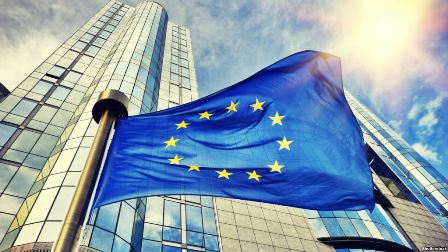EU sees continued progress regarding human rights in Georgia

There has been continued progress as regards human rights in Georgia over the past year, reads the statement of Spokesperson for European Neighbourhood Policy and Enlargement Negotiations Maja Kocijancic.
The statement was released following the 11th annual Human Rights Dialogue between EU and Georgia held on April 24 in Brussels.
"The EU reaffirmed its support for the sovereignty and territorial integrity of Georgia within its internationally recognised borders. It reiterated its concerns about the deprivation of life in custody of Georgian citizen Archil Tatunashvili in Tskhinvali in February and about the overall deterioration of the human rights situation in the Georgian regions of Abkhazia and Tskhinvali region/South Ossetia in particular with regard to ethnic discrimination, freedom of movement, property rights, and education in mother tongue, as well as about continued obstacles to the rights of internally displaced persons and refugees to a safe and dignified return to their homes,” reads the official statement.
The EU and Georgia agreed on the importance of unhindered access of international human rights monitoring mechanisms under international organisations, as well as the EU Monitoring Mission (EUMM) to the breakaway regions of Abkhazia and South Ossetia, and recalled that the Russian Federation has an obligation to implement the EU-mediated 12 August 2008 Ceasefire Agreement.
On the other hand, the EU welcomed the new peace initiative of the Georgian government "which can benefit the populations living on both sides of the administrative boundary lines by facilitating trade, education and mobility and fostering people-to-people contacts and confidence building between the divided communities.”
While noting the increasingly free and active media that fostered greater political debates, both the EU and Georgia agreed on the importance of maintaining a free and pluralistic media environment, and political pluralism as a prerequisite for the conduct of democratic elections. Also, the EU encouraged Georgia to increase the participation of women and national minority representatives in politics.
Moreover, the EU encouraged Georgia to continue ensuring the effective implementation of its anti-discrimination law, including in the private sector. The participants stressed their commitment to the universality of human rights for all, regardless of religion or belief, race, sex, language, sexual orientation, gender identity, ability or other.
The EU underlined the progress made by Georgia with regard to the protection of ethnic minorities and their civic integration and encouraged the government to continue taking steps in this regard.
The parties also agreed to continue and further develop their fruitful cooperation on human rights related matters in multilateral formats, such as the UN, OSCE and the Council of Europe.
During the eleventh round of annual Human Rights Dialogue the EU delegation was led by Dirk Schuebel, Head of Division for Eastern Partnership bilateral relations in the European External Action Service, while the Georgian delegation was headed by Vakhtang Makharoblishvili, Deputy Minister of Foreign Affairs.
The next Human Rights Dialogue between the EU and Georgia is scheduled to take place in Tbilisi in 2019.
 Tweet
Tweet  Share
Share